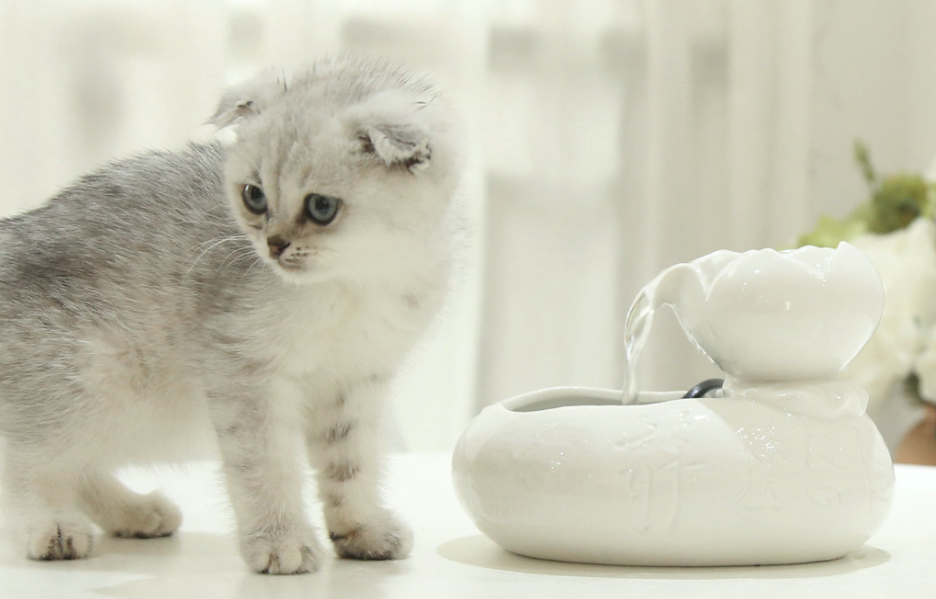The fact is that there are no relevant medical studies, which results may identify how long can cats go without water. The reason is apparent - it would be indescribably morally wrong to cause the death of hundreds of cats to get a result proving nothing new. The fact is that cats need water to survive!
Why Is Water So Crucial For Your Kitty?

Let's talk about physiology first. All of us realize that, like any other living creatures, cats cannot live for long without water. It is just a matter of time.
We can make some conclusions based on accidents when a cat was locked in the cellar by mistake or trapped in a shed. In such cases, it is possible to determine the moment when dehydration occurred approximately.
The crucial factor is how much water contains the body of a particular cat. It primarily depends on the age of your pet and its body fat percentage. On average, the body of your beloved cat is made of 65% to 75% water. Be aware that any fluctuation in these values can be fatal to your kitten's health.
Water plays multiple roles in the normal functioning of the body of your cat:
- It allows the regular work of body cells and, consequently, keep all the organs healthy
- It keeps the brain active and in good health
- It helps the blood circulation
- It improves metabolism
- It improves the process of digestion and helps your cat poop and pee regularly
- It removes toxins from the cat’s body
- It keeps the pH value of urine in the physiological range
Most cats can survive approximately a week without food. It depends on their health, overall condition, as well as the environment. On the other hand, it is believed that they cannot live more than three to four days without water.
Get To Know Your Cat's Habits
Basically, cats need at least 2 to 4 oz (60 - 118 ml) of water per 5 pounds (2.7 kg) of body weight a day to stay healthy and well-hydrated. They will intake it by drinking or through food. However, there is a catch! You need to pay attention to the habits of your cat on time to prevent trouble.
Let me explain in the example of one of our three cats. Well, Clementine came to our house as a tiny kitten, and the only mother she has ever had is our dog, Malena.
Everything she knows, Clementine has learned from her 'mother,' and she behaves like a real American Stafford Terrier all her life. It includes walking on the leash, chasing after cats on the streets, and chewing large bovine bones.
However, the real problem is their attitude toward water. Namely, Clementine drinks water exclusively from the tap just like her 'mom.' I have never considered that as an issue, but this habit could have cost my beloved baby her life.
The first time when I left her at my friend's house for two days, she was thirsty all the time. My friend was worried, purchased her a new bowl, kept the water clean, even took her to the vet, but nothing worked. She could not imagine what the problem was. Clementine did not have access to the tap!
What Effects Your Cat's Drinking Habits?
A few crucial things determine your cat's daily water needs:
Food - High quality canned food consists of 80% water, and it can provide a good portion of your kitten's daily water needs.
On the other hand, cats feeding on dry food may have an issue with a lack of water intake. You should know that granulated food contains only 6 to 10% of water.
Frequency of feeding - The more often your cat eats during the day, the more water it needs.
Cat’s health - Some medical conditions affect the drinking habits of your pet, especially particular kidney problems.
Cat's age and size - Older and bigger cats need more water than younger and smaller ones.
Period of the day - No one knows why, but it seems that most cats prefer drinking more water during the day than at night.
Environment - If the daily temperatures are too high, you need to provide enough water for your cat. It will help it make up for fluid lost through sweating.
What Effects Your Cat's Drinking Habits?
Dehydration occurs when water and electrolytes in the body are in imbalance for some reason. It is directly connected with insufficient water intake. Unfortunately, this condition leads to severe complications.
There are two primary reasons for dehydration in cats:
When they drink less water
You may notice that your cat refuses to drink enough water without an apparent reason. Perhaps your cat:
- Prefers running water
- Does not like when water and food bowl are too close
- Dislikes size or shape of the water bowl
- Refuses to drink water if it is not fresh
- Does not want to drink from the bowl positioned against a wall since that position makes it feels vulnerable
- Is sensitive to the liquid dish soap you use to wash the water bowl
When they lose too much fluid
Possible reasons for losing water from the body can be:
- Increased activity
- High daily temperatures in summer
- Vomiting
- Diarrhea
Unfortunately, cats may refuse to drink water until losing 8% of the water stores in their bodies. Be careful because, in most cases, it will be fatal!
How To Make Your Cat Drink More Water

It is essential finding out what way of water intake your cat prefers because it will help your furry friend stays hydrated. If your pet, like my Clementine, prefers flowing water, consider installing a miniature cat water fountain. It will provide enough fun for your cat and encourage it to drink water more regularly.
On the other hand, some cats, like my Josephine, are picky. They pay attention even to the shape and material of the water bowl. I experimented and discovered that she prefers to drink water from a metal bowl while avoiding plastic ones. You should check the same.
If you are lucky, your cat is like my Sofia, and it drinks water from everything, including trays, a dog bowl, coffee cup, or plate. If you have such a cat, the only thing you should take care of is to change the water regularly and keep it fresh.
Conclusion
Keep in mind that loss of appetite, dry mouth, lethargy, elevated heart rate, less urination, and decreased skin elasticity are clear signs of dehydration. If you notice any of them, you should take the necessary steps immediately to help your cat catch up on water.

Holly Hudson
Mad cat lady, expert and creator of the Cat Cave Co.Does your cat need a new bed?
Browse our endless array of hand made cat caves.

